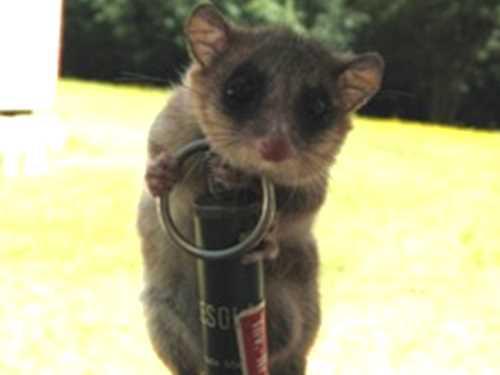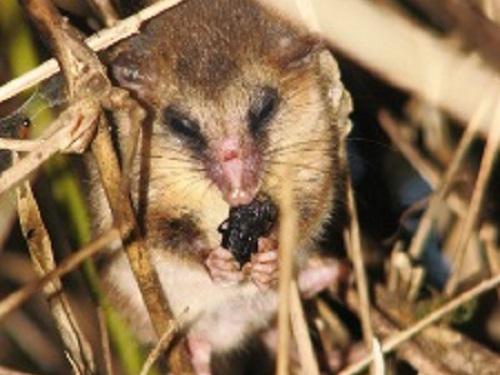Lida Marcela Franco Pérez
Other projects
15 Oct 2012
Dispersal, Population Genetic Differentiation and Kinship of an Ancient Marsupial (Dromiciops gliroides) in a Highly Fragmented Landscape
The aim is to determine the effect habitat variables on the ecological and behavioral patterns of D. gliroides, including the study of social system, mating strategies and home range.

The Temperate Rainforests of Austral South America are located between 35 and 42º S, and have been catalogued as “hot spot” of biodiversity and an unique forest ecosystems, due present a high level of endemic flora and fauna descendant of ancient lineage alone in the planet. Within of the biodiversity that refuge these ecosystems live the endangered marsupial Dromiciops gliroides named “monito de monte”. This species is considered as living fossil due is the only living representative of the Order Microbiotheria, a line phylogenetically alone and primitive within the mammals of world. In addition, has been considered an important ecological actor which contributes in a variety of mutualist interaction with flora in the Rainforest.

Therefore, it is an “umbrella” species (whose habitat protect to other species) and charismatic to the conservation of these Austral ecosystems. On the last time the degradation of the temperate rainforest ecosystems of southern Chile and its biotic communities every time is more evident, and the conservation studies are imminently necessaries. Despite of the ecological and evolutionary importance of D. gliroides for the rainforest of Southern Chile, its conservation status is unknown and only recently began to know features of its natural history. Based in this fact, the principal aim of this project is determine the ecological and behavioural patterns of D. gliroides including the study of social system, mating strategy and home range, and determine the reproductive success of this marsupial in different habitats. Additionally, we will assess the effect of biotic and abiotic variables including huddling effect on the survival during hibernation.
Finally, with this information we will implement an educational program and thrusting initiatives to avoid deforestation and to create consciousness about of the protection habitat and biodiversity of the Temperate Rainforest ecosystems. The data generated by this project will yield significant new insights of the ecology and behaviour of D. gliroides in disturbed habitats. Taking into account, the study on the behavioural ecology is essential to propose conservation strategic plans, because affect species persistence through a wide variety of mechanisms, such as, social disruption of breeding (social interaction, mating system), dispersal (home range) and settlement decisions, learning and social foraging. These later aspects determine the reproductive success and the conservation of this marsupial in vulnerable habitats.